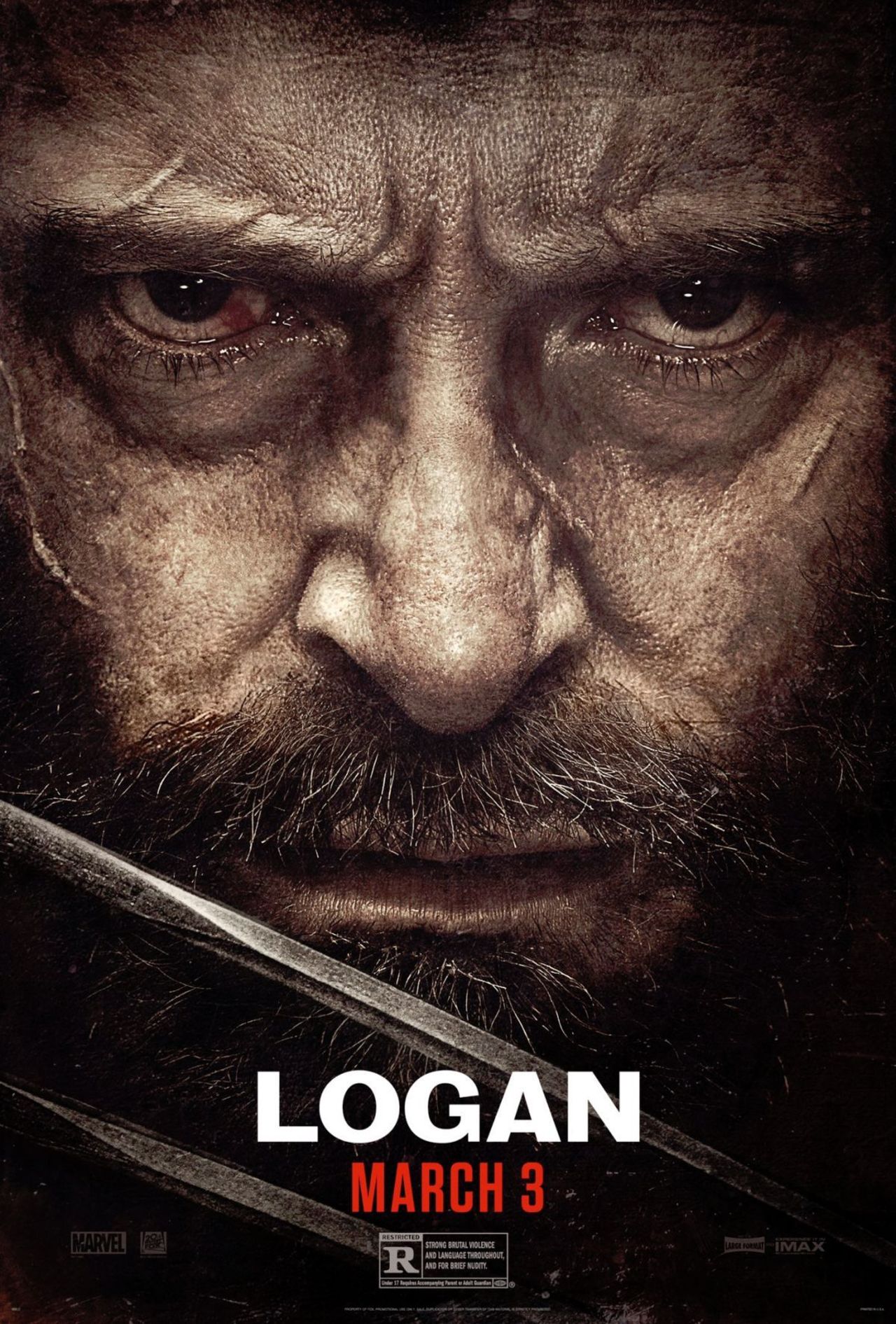Film Review: Logan (2017)


I’m going to go on record and say that Logan may be my favorite superhero movie I’ve seen to date. I say “may be” simply because it seems that, at some point, something this good must have come along before now, right? Well, it hasn’t. Logan makes you realize just what is possible within the genre, and what a waste of time almost every other comic book movie really is. The genre is here to stay, there’s no getting around that, but I see no reason why these films can’t accomplish more than they often do. Logan proves that there is room for exceptional storytelling and filmmaking within the confines of the superhero genre. I take that back, Logan shows that it is possible to break the confines of its genre and deliver a film with a moving emotional center we rarely get to see. This sort of heart will take you a hell of a lot further than explosions and property damage, I can tell you that much.

At its core, Logan is a western. Essentially, it’s the story of an aging gunfighter who has given up the fight. He’s well past his prime and he knows it. The killing has gotten to him, and all he wants is to finish out his days in peace. That, of course, is impossible, as his past inevitably catches up with him, offering him one last shot at redemption. It’s a familiar motif, one we’ve seen before in films like Unforgiven (1992), and John Wayne’s final film, The Shootist (1976), but there’s more at play here than just Wolverine’s redemption. Logan—along with with its Western influences—is also about living up to the myths that are built around heroes, and the danger in glorifying those often-violent myths. This is exemplified with direct references to Shane(1953), the story of a mythologized gunslinger who is idolized by a young boy.

In the not-too-distant-future, mutants seem to be all but extinct. Logan (Hugh Jackman) is eking out a living as a limousine driver in a southern border town. His powers of healing have greatly diminished, and the adamantium inside of him seems to be slowly killing him from within. He acts as a caregiver, along with another mutant, Caliban (Stephen Merchant), to the ailing Professor Charles Xavier (Patrick Stewart). Xavier, whose mind has been classified as a weapon of mass destruction, is suffering from a degenerative brain disease that causes seizures. These seizures have the capacity to kill everyone around him.
Logan and Charles bicker like an old married couple, but their mutual respect, admiration, and love for one another is apparent and offers a level of emotion that is refreshing for the genre. Stewart, the father figure, and Jackman, the defiant son, are on top of their games, in what may be the best performances of their careers. That may seem like an exaggeration, but I’m not kidding. Things are complicated when a young girl in trouble shows up. She needs help getting to Canada, and Wolverine and Professor X are her only hope. Laura (a brutally savage yet utterly sympathetic Dafne Keen) is the first new mutant anyone has seen in a good long while, and her importance is not lost on Xavier. Logan, on the other hand, is a bit more apathetic.

Thus, the chase begins, with cybernetic bounty hunters and evil scientists in hot pursuit, our heroes head north. The generational mixture of mutants has on-screen chemistry for days, with Charles attempting to impart lessons to Laura while Logan tries to keep them all alive. Along the way, our three protagonists all attempt to come to terms with the mistakes, loss, and violence of their pasts. Laura, an innocent who was raised as a killing machine (much like Logan), is torn between the violent life she has been taught and the peaceful life she longs for. This polarity, coupled with Charles’ guilt, and Logan’s begrudging need for redemption, gives the film a sense of real (as in, not manufactured) purpose that is rare among blockbusters of this sort. The heart of it all is palpable; there is real emotion at play. They’re not trying to save the Earth from alien invasion, or something else that requires billions in damages, and multiple required film tie-ins, they’re trying to save each other. There’s a big difference there, and it shows. This is about people, not mere characters.
It’s also very violent and full of bad swears (hence the R rating), which makes it oh so much more fun. This is of note because, if you know anything about the comic book version of Wolverine, you’d know that Logan is a much more accurate portrayal of him. Hugh Jackman’s Wolverine/Logan/Weapon X has killed a lot of people over the last 17 years, but never like this. Dafne Keen’s Laura is even worse (and by that, I mean better). Her savagery is staggering. There’s something unsettling about a 10-year-old on a killing spree. That she remains sympathetic through all the dismemberments is telling of the power of the story. You have no choice but to root for her, even as she rolls a severed head to your feet.

All told, Logan is the direction I want to see the superhero genre move toward. There is so much room for compelling, heartfelt, and moving stories within its confines. You can still have fight scenes, chase scenes, and explosions if you must, but please, show us something more. Logan proves that anything is possible. Its heart lies in the pain of the characters that we know and love, not the budget. It’s a great farewell.
